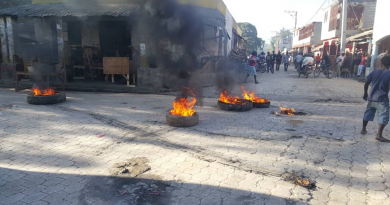Focus on Religious Persecution: Iran
By Daniel D’Amico
Staff Writer
On 25 September 2016, Mr. Farhang Amiri was murdered outside of his home in Yazd, Iran, by two young men who confessed to attacking him simply because he was a Baha’i. According to the Bahá’í International Community Representative Offices, Mr. Amiri was stabbed and died soon after at a hospital. This is one of the many instances of Baha’i persecution in Iran.
The Baha’is represent the largest religious minority in Iran numbering around 300,000. The Constitution classifies them as “unprotected infidels” and “heretics” and omits them from the list of the three recognized religious minorities. A report by the FIDH and the Ligue de Défense des Droits de l’Homme en Iran highlights how the Baha’is are considered “non-persons” and have no legal rights or protection. The persecution of this religious minority goes back about 14 years despite the fact that they have posed no danger to the regime. The Islamic regime has even gone as far as offering them an end to the persecution if they recant their faith and beliefs.
The origins can be traced back to the 1979 Islamic Revolution in Iran. During the first decade of this persecution, a few hundred Baha’is were killed or executed. In addition, hundreds were tortured or imprisoned and tens of thousands lost jobs, access to education, and other rights for their religious belief alone. This persecution has only intensified over the past decade.
The school sector is no exception to these persecutions. Baha’i students have been harassed and even threatened with expulsion for practicing their beliefs. In addition, they are denied access to public and private universities. For instance, the Bahá’í International Community Representative Offices discusses an instance where Ms. Shadan Shirazi was denied entrance to the university despite scoring 113th on the national college entrance exams. To combat this, the Baha’i Institute for Higher Education, a volunteer-based organization, formed to attempt to give Baha’is a better education. However, they have been frequently harassed and even arrested.
The Baha’i have also suffered from economic pressure. This includes jobs, primarily Government jobs, and licenses being denied to them. In addition, there has been pressure to fire Baha’i employees. The Bahá’í International Community Representative Offices discusses a series of incidents in November where 124 Baha’i owned shops and businesses in Mazandaran, Alborz and Hormozgan were sealed when the owners closed to observe Baha’i holidays.
There have also been roughly 900 Baha’i arrests in the past decade. These usually occur as a result of items being confiscated from the house of a Baha’i. Following their arrest, their house is typically raided further. In addition, there have been 68 documented cases of violence against the Baha’i. One of the more infamous cases was the murder of Ataollah Rezvani. He was a well-known, respected Baha’i who was dismissed from his work and pressured to leave the city. Prior to his death, he received threatening telephone calls from unknown people
Before he came to power, the president of Iran, President Rouhani, promised to strengthen civil liberties for religious minorities. However, according to the United States Commission on International Religious Freedom, since assuming power in 2013, the number of religious minority community members who are in prison for their beliefs has increased, including at least 85 Baha’is. USCIRF has even gone as far as to recommend that Iran be named a “country of particular concern” under the U.S. International Religious Freedom Act for its “systematic, ongoing and egregious” restrictions on religious freedom. Also, that the U.S. government identify Iranian government agencies and officials responsible for violations of religious freedom, freeze their assets, and bar their entry into the United States.
While these actions may have some effect, it will be minimal and not what the country needs to put the persecutions to an end. It has gone on for decades and shows no signs of subsiding unless further action is taken.


